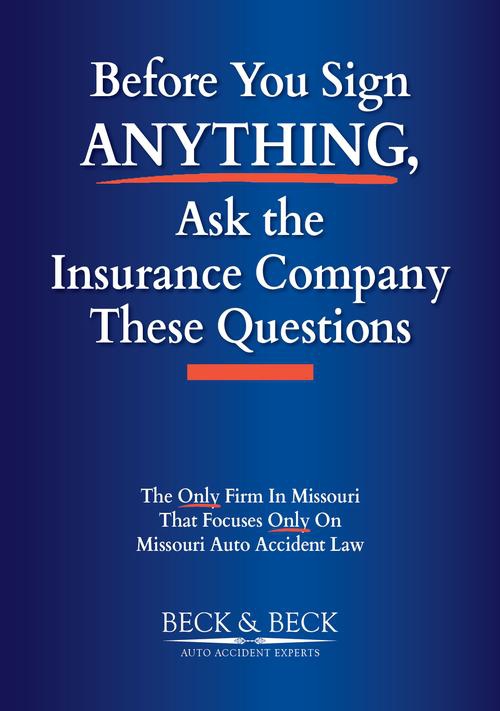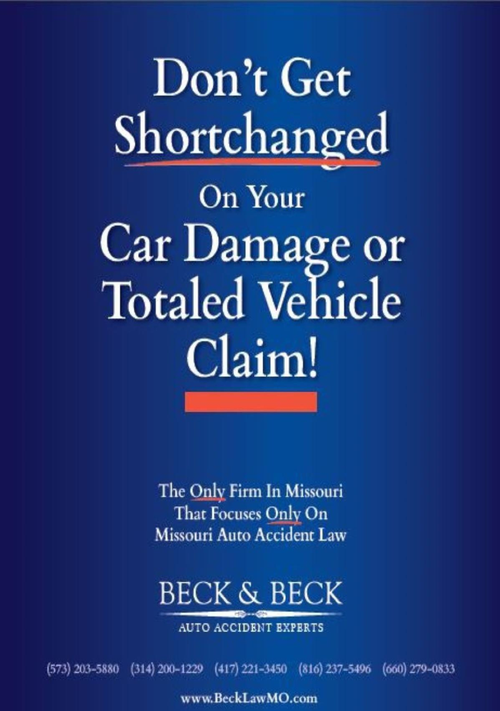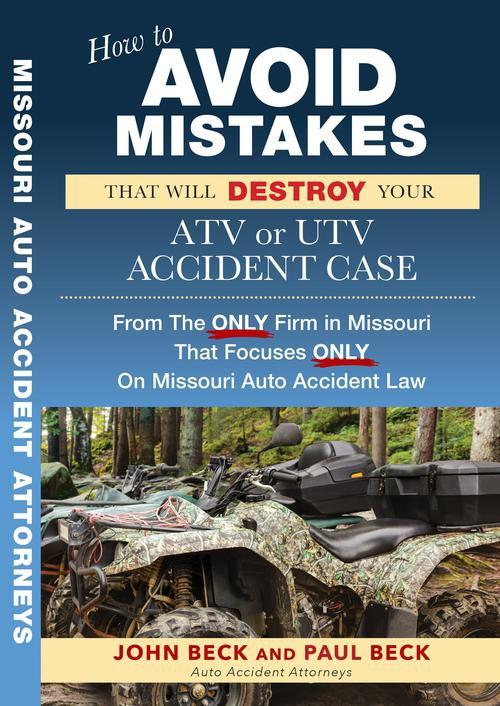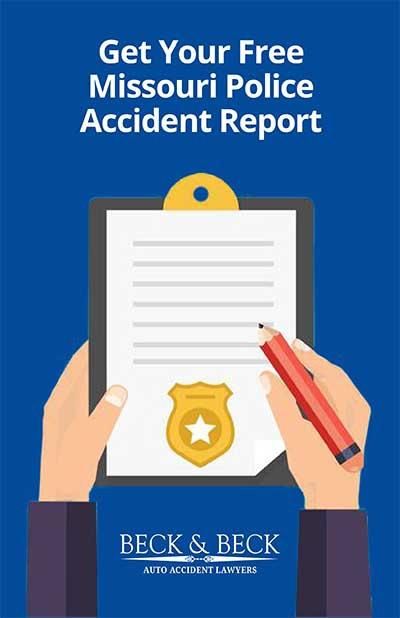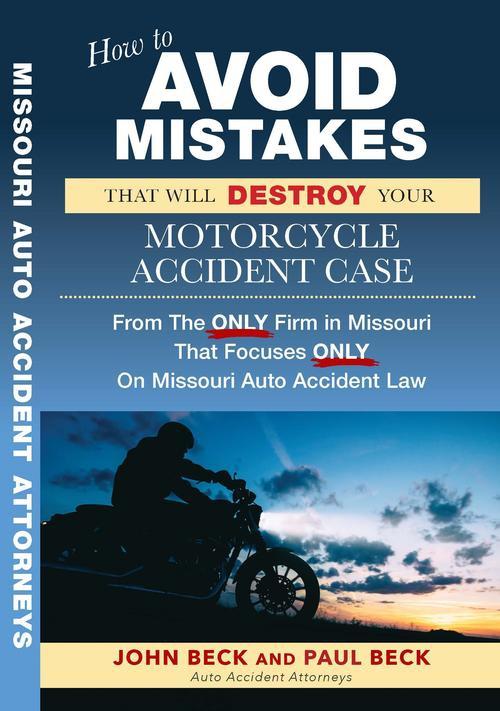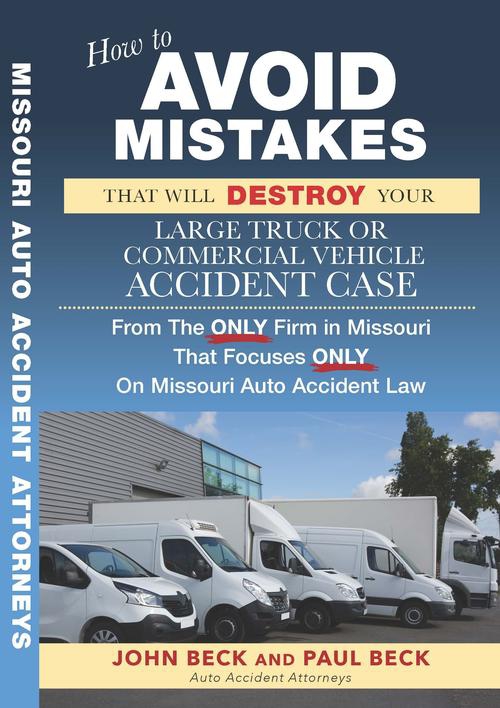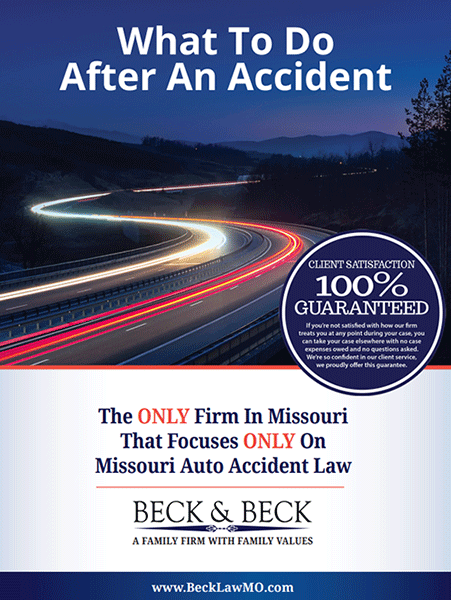After a car accident in Missouri, an insurance adjuster investigates your claim and decides how much the insurance company will pay you.
Insurance adjusters follow a systematic process to evaluate your accident, including reviewing police reports, requesting your statement, assessing fault under Missouri’s comparative negligence laws, and making settlement offers.
These adjusters work for the insurance company, not for you, and their primary goal is to minimize payouts by finding reasons to reduce your settlement or deny your claim entirely. They use various tactics like quick lowball offers, delaying claims, and shifting blame to protect their company’s financial interests.
Consulting with a skilled car accident attorney in Missouri, and understanding how adjusters operate helps you avoid saying or doing things that could harm your case.
Who Does the Adjuster Work For
Every insurance adjuster has one boss: the insurance company that pays their salary. This creates a serious problem for you because what’s good for them isn’t good for you.
Adjusters get evaluated based on how much money they save their company. The less they pay out on claims, the better their job performance looks. Even when they seem friendly and helpful, they’re working against your interests.
You may encounter different types of adjusters:
- First-party adjuster: Works for your own insurance company
- Third-party adjuster: Works for the other driver’s insurance company
Both types have the same goal of minimizing what they pay you, even though you have a contract with your own insurer.
What Do Insurance Adjusters Do After a Crash
Insurance adjusters follow the same basic steps after every car accident. Their process is designed to find reasons to pay you less money or deny your claim completely.
Investigate the Scene and Reports
The adjuster starts by collecting information about your crash. They read the police report carefully and look at photos of the accident scene and vehicle damage.
They examine physical evidence like skid marks, debris, and the final position of the vehicles. Their goal is to figure out what happened and find ways to blame you for the accident.
Request a Statement and Records
The adjuster will contact you asking for your version of what happened. They often want to record this conversation and will ask you to sign forms giving them access to your medical records and employment information.
This might seem helpful, but they’re actually gathering ammunition to use against you later. Everything you say can be twisted to reduce your settlement.
Evaluate Fault Under Missouri Comparative Fault
Missouri uses a pure comparative fault system. This means your compensation gets reduced by whatever percentage of fault they can pin on you.
If the adjuster decides you’re even 10% to blame, they cut your settlement by 10%. They spend a lot of time looking for any evidence that you contributed to the crash, no matter how minor.
Set Reserves and Value the Claim
Based on their investigation, adjusters set aside money called “reserves” for your claim. They use computer programs and data from past cases to calculate what they think your claim is worth.
This internal number heavily influences what they’ll offer you. The problem is their calculations are designed to lowball your actual damages.
Negotiate Settlement and Push Quick Offers
The adjuster’s end game is getting you to accept the smallest settlement possible. They often make fast, low offers within days of your accident.
These quick offers come before you know how badly you’re hurt or understand your rights. They’re hoping you’ll take the money and go away.
Should You Talk to the Insurance Adjuster
You have no legal duty to speak with the other driver’s insurance adjuster. We strongly recommend you don’t give any statement without talking to our attorneys at Beck & Beck Missouri Car Accident Lawyers first.
Your own insurance policy probably requires you to cooperate with their investigation. But even then, you need to be extremely careful about what you say.
Adjusters listen for specific things that hurt your case:
- Admissions of fault: Saying I’m sorry or I didn’t see them becomes evidence against you
- Downplaying injuries: Comments like I’m okay or It’s not that bad reduce your settlement
- Inconsistent details: Any small change in your story makes them question your honesty
- Treatment gaps: Waiting to see a doctor gives them an excuse to deny your injuries
What to Say When They Call
When an adjuster calls, stay calm and polite. Only give basic facts like your name, when the crash happened, and where it occurred.
Politely refuse to discuss your injuries, how the accident happened, or give a recorded statement. Tell them you need to speak with your attorney first.
Recorded Statements and Medical Authorizations
Never agree to a recorded statement without legal help. Adjusters use these recordings to ask confusing questions designed to trap you into saying something harmful.
Don’t sign blanket medical authorization forms either. These give them permission to dig through your entire medical history looking for pre-existing conditions to blame for your pain.
Social Media and Surveillance Risks
Insurance adjusters check your Facebook, Instagram, and other social media accounts. They look for photos or posts that suggest you’re not as injured as you claim.
Some insurance companies hire private investigators to follow you around with cameras. They’re hoping to catch you doing something that contradicts your injury claims.
How Do Adjusters Decide Fault in Missouri
Determining who caused your accident is the most important part of your claim. Missouri adjusters investigate crashes to assign blame, which directly affects whether you get paid and how much.
Police Report and Witness Statements
Adjusters study the police report even though officers don’t officially decide who’s at fault. They look for any notes, diagrams, or tickets that suggest someone was negligent.
They also contact witnesses to get statements. But they’re not looking for the truth – they want statements that support their company’s position and hurt your case.
Traffic Laws and Road Conditions
The adjuster reviews whether anyone broke Missouri traffic laws like speeding, failing to yield, or following too closely. They also consider weather, road design, and visibility issues.
They’re looking for any factor they can use to shift blame onto you, even if the other driver was clearly wrong.
Comparative Fault Example
Here’s how Missouri’s comparative fault system works against you:
You’re rear-ended at a red light in St. Louis, but your brake light was burned out. The adjuster argues you are partially at fault because of the broken light. They often assign you partial fault to reduce your payment, resulting in a smaller settlement.
This shows how they use minor issues to significantly cut your compensation.
Common Insurance Adjuster Tactics in Missouri
Insurance adjusters use proven strategies to minimize what they pay you. These tactics aren’t necessarily illegal, but they’re designed to protect their company’s profits at your expense.
Quick Lowball Offers
One of their favorite tricks is making a fast settlement offer right after your crash. This offer usually comes within days and is far below what your claim is actually worth.
They make these offers before you understand how badly you’re hurt or what your medical treatment will cost. They’re betting you’ll take the quick money instead of fighting for what you deserve.
Delay and Deny Patterns
Some adjusters intentionally slow down the claims process. They ignore your calls, repeatedly ask for the same documents, or take weeks to respond to simple questions.
Their goal is to frustrate you with delays until mounting bills force you to accept whatever they offer. The longer they wait, the more desperate you become.
Shifting Blame to Reduce Payout
Adjusters search for any reason to make you partially responsible for the crash. Under Missouri’s comparative negligence law, even small amounts of fault directly reduce your settlement.
They might argue you were distracted, driving too fast for conditions, or could have avoided the crash somehow. Any blame they can pin on you saves their company money.
Property Damage vs Injury Adjusters
Insurance companies often use different adjusters for your car damage and your injury claim. The property damage adjuster might be friendly and pay your car repair bills quickly.
This creates false trust that makes you unprepared for the injury adjuster, who will be much more aggressive in fighting your claim.
How to Protect Your Missouri Claim
Taking the right steps after your accident protects you from adjuster tactics and strengthens your case for fair compensation.
Document Symptoms and Time Off
Keep a daily record of your pain levels, physical symptoms, and activities you can’t do anymore as this documentation serves as crucial evidence in Missouri car accident claims. Write down every day you miss work, including time off for doctor appointments.
This documentation provides solid evidence when adjusters try to downplay your injuries or argue you weren’t really hurt.
See a Doctor and Follow Treatment
Get medical attention immediately after your crash, even if you feel fine at first. Many serious injuries don’t show symptoms right away.
Follow all your doctor’s treatment recommendations. Gaps in medical care or skipped appointments give adjusters ammunition to deny your claim.
Let Us Handle Communications
When you hire Beck & Beck Missouri Car Accident Lawyers, we take over all contact with insurance companies. We’re the only law firm in Missouri that focuses solely on auto accident cases.
We know every trick adjusters use because we deal with them every day. We protect you from saying anything that could hurt your case.
Use Time-Limited Demands When Appropriate
Missouri law allows attorneys to make formal settlement demands with deadlines. When we send a proper time-limited demand, the insurance company must respond fairly within our timeframe.
If they refuse a reasonable demand or ignore our deadline, they can be held liable for acting in bad faith.
First-Party vs Third-Party Adjusters in Missouri
Understanding which type of adjuster you’re dealing with helps you know what to expect from the claims process.
UM/UIM Claims and Adversarial Posture
If the driver who hit you has no insurance or not enough coverage, you might need to file an UM/UIM claim with your own insurance company.
In these situations, your own insurance company becomes your opponent. Their adjuster will fight your claim just as hard as any third-party adjuster would.
MedPay Coverage and Subrogation
Medical Payments coverage (MedPay) is optional insurance that helps pay medical bills regardless of who caused the crash. It provides quick payment for immediate medical needs.
However, if your insurer pays MedPay benefits, they may demand reimbursement from any settlement you receive from the at-fault driver. This process is called subrogation.
When to Call a Missouri Car Accident Lawyer
The best time to contact a lawyer is before you speak to any insurance adjuster. Early legal help prevents costly mistakes and puts an experienced advocate on your side from day one.
Trying to handle a trained adjuster by yourself puts you at a serious disadvantage, which is why you need a lawyer for your car accident case. Here’s what the difference looks like:
| Without a Lawyer | With Beck & Beck |
| Adjuster controls all conversations | We handle all communications |
| You guess at your claim’s value | We know Missouri settlement values |
| You face trained negotiators alone | We negotiate with extensive experience handling Missouri auto accident claims |
| You get one chance to get it right | We fight until you’re fairly paid |
Beck & Beck Missouri Car Accident Lawyers — we help accident victims.
Missouri Law Firm Specializing in Car Accident Claims
Missouri gives you five years to file a personal injury lawsuit, but you shouldn’t wait that long. Evidence disappears quickly, witness memories fade, and adjusters use delays to weaken your case.
The sooner you contact us, the better we can protect your rights and build a strong case. We offer free consultations and never charge a fee unless we win your case.
Don’t let insurance adjusters take advantage of you during this difficult time. Contact Beck & Beck Missouri Car Accident Lawyers today to learn how we can fight for the compensation you deserve.
FAQ
Do I Have to Give a Recorded Statement to the Other Driver’s Insurance?
No, you have no legal obligation to give a recorded statement to the at-fault driver’s insurance company. These recorded statements are designed to trap you into saying something that hurts your case, so it’s best to politely decline.
Can I Talk to My Own Insurance Adjuster After an Accident?
Your insurance policy requires you to cooperate with your company’s investigation, but you should still be careful about what you say. Having an attorney handle these conversations protects you from accidentally harming your own claim.
What Happens If I Sign a Medical Authorization Form?
Signing a blanket medical authorization gives the insurance company access to your entire medical history, not just records related to your accident. They use this information to look for pre-existing conditions they can blame for your current injuries.
How Long Does an Insurance Company Have to Respond to My Claim?
Missouri law doesn’t set specific deadlines for claim responses, but insurance companies must handle claims in good faith without unreasonable delays. If they drag out the process, they may be acting in bad faith, which affects the time to settle car accident claim Missouri residents file.
What If the Other Driver Doesn’t Have Enough Insurance?
If the at-fault driver’s insurance coverage isn’t enough to pay for all your damages, you can file a claim under your own underinsured motorist (UIM) coverage to recover additional compensation for your injuries and losses.
Should I Accept the First Settlement Offer?
The first settlement offer is almost always much lower than your claim’s true value. Insurance companies make these quick offers hoping you’ll accept before you understand the full extent of your injuries and future medical needs.

